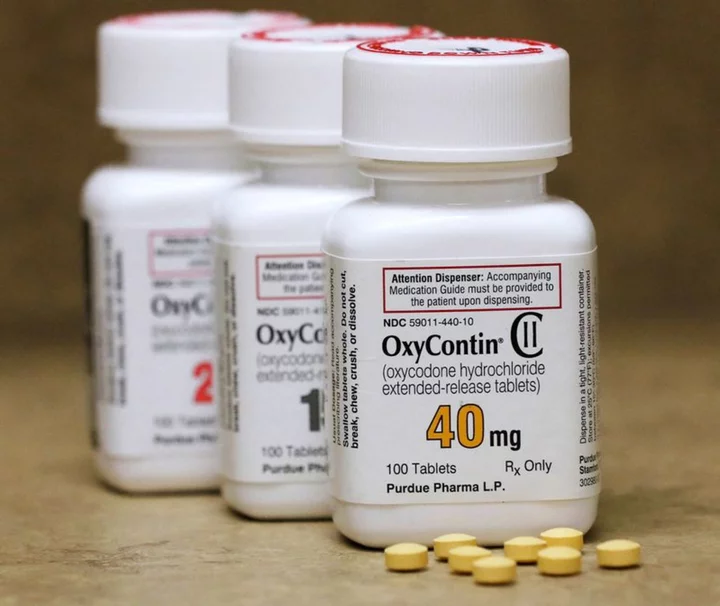By Dietrich Knauth
NEW YORK Oxycontin maker Purdue Pharma on Friday asked the U.S. Supreme Court to reject the U.S. Department of Justice's request to delay its multi-billion-dollar bankruptcy settlement resolving thousands of lawsuits against it over the opioid epidemic.
The department's bankruptcy watchdog last week asked the Supreme Court to pause the settlement, which would shield the company's Sackler family owners from opioid lawsuits in exchange for a $6 billion contribution to a broader settlement with states, local governments and victims of addiction.
The Department of Justice (DOJ) asked the high court to put the deal on hold after a federal appeals court rejected a proposed delay.
Purdue on Friday argued a delay would be destructive, imperiling a settlement that has the support of all major stakeholders, including state attorneys general and people affected by the opioid crisis.
The DOJ's position would "take billions of dollars out of opioid abatement programs that are sorely needed" and potentially "deprive victims of any meaningful recovery" if the deal falls apart, Purdue's lawyers wrote.
That position was echoed by a group representing 60,000 people who have filed personal injury opioid claims in Purdue's bankruptcy.
Purdue's plan would pay up to $750 million to individuals affected by the opioid crisis, and any delay of those funds would have "real consequences" for the many opioid claimants who "live on the edge of poverty" and face risk of eviction or repossession of their cars, according to the personal injury claimants' filing.
The Justice Department has argued the settlement abuses legal protections meant for debtors in "financial distress," not for wealthy corporate owners like the Sacklers, who did not file for bankruptcy themselves.
Purdue has sought to use bankruptcy to resolve thousands of lawsuits, many filed by state and local governments, that said OxyContin helped kickstart an opioid epidemic that caused more than 500,000 U.S. overdose deaths over two decades.
Similar lawsuits related to the U.S. opioid crisis have resulted in more than $50 billion in settlements with manufacturers, drug distributors and pharmacy chains.
(Reporting by Dietrich Knauth; editing by Grant McCool)

